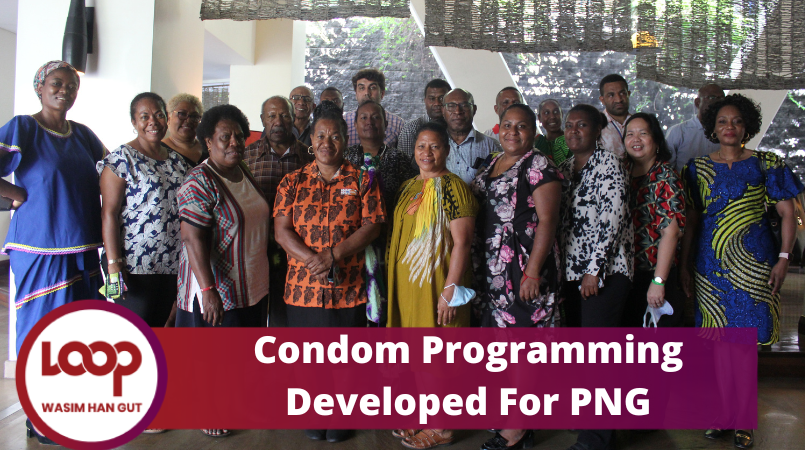
For the first time in Papua New Guinea, and in the Pacific Region, a national guideline is being developed that considers the potential of condom programming in contributing to sustainable development.
The program would put the rights, needs and aspiration of all sexually active individuals at the centre.
The guidelines are being developed for the National Department of Health and the National AidsCouncil.
Facilitated by the United Nations Population Fund (UNFPA), the Comprehensive Condom Programming Strategy (CCPS) Strategic & Result Framework Workshop held last Friday had important stakeholders discussing the future of CCPS in PNG by contextualizing the strategy into PNG and reviewing how best the strategy can be implemented across the country.
UNFPA Deputy Representative Rena Dona said the Comprehensive Condom Programming is part of a 10 step strategic approach, an approach developed by the UNFPA in 2011 to scale up condom comprehensive programming.
“This document is useful because it encourages multi-stakeholder participation,” said Dona.
“Most importantly, the ultimate responsibility for decision making and implementation is in the hands of national partners.
“Male and female condoms are key in protecting people against sexually transmitted infections including HIV and is the best approach for both family planning and prevention of HIV and other STDs. It is like a two prompt objective.”
According to the Acting Director of National Aids Council Secretariat, Tony Lupiwa, condom promotion has always been the main HIV/Aids prevention program in Papua New Guinea, but usage is not sustained. There are problems with availability of condoms and their transportation to every community.
“There was a need for a guideline in the country to ensure the sustainability of condoms and the access to them by everyone,” Lupiwa said.
“Condoms have always been around and it is through such guidelines as the CCPS that we can best identify how to improve availability and access. We must review, finalize and then disseminate this strategy to the rest of the country.
“Condom programming is not just about preventing STIs, including HIV and unplanned pregnancies, it’s about giving individuals the freedom to decide how to protect themselves and plan for their future.”
This strategy will also be taking into consideration existing HIV programs ensuring they are being supported and implementing partners will be working closely with NDOH & NAC.
The components of the Strategy will include capacity programming of HIV, the Condomize Campaign which begins in POM and Alotau in September, and mobile and family planning clinics.
UNFPA states that it is designed to not only align itself to government priority development plans but to be considered as a strategy for population policy and programmes aimed at achieving poverty eradication, sustained economic growth, human resource development whereby comprehensive protection and support are central to strengthening families
The expected outcome following the CCPS is to reach a consensus that will result in a framework from 2022-2031. Once the strategy is approved and endorsed by the government, the NAC and NDOH will own the strategy and have it implemented through Provincial Health Authorities and other NGOS that provide SRH programs.
“The PHA’s will be implementing it at provincial, district and community levels, NGOs such as World Vision, Marie Stopes, FHI 360, Catholic Health Services, and other private sectors that deal with SRH programs.”
